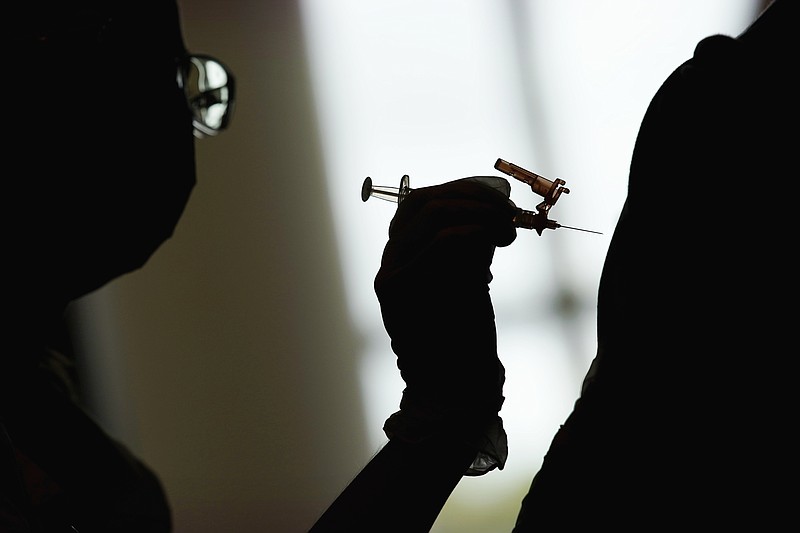If you're a coronavirus-wary Hamilton County parent planning to send your child back to school in less than a month, we don't envy you.
Just as was the case a year ago with so much conflicting information about the global pandemic itself, parents this summer must weigh whether their eligible children should receive a vaccine, whether their children should or should not wear a mask if they haven't been vaccinated and whether they should seek an alternative to in-person learning if they're worried about an outbreak in our low-vaccinated state.
We've been upfront about our belief in the coronavirus vaccinations and the good they do for the entire population, but we understand the skepticism and uncertainty about how to proceed.
Hamilton County Schools ended its mask requirement for students and staff on June 1, but the Centers for Disease Control and Prevention still suggests students under 12 - who are not eligible for the vaccines - wear a mask and that classrooms still have a "layered" approach to prevent the spread of the virus, including maintaining 3 feet of space between students.
County school students will not have a hybrid option, HCS at Home, this fall, and this should be a good omen for student learning. Experts across the country have said the online learning with which many school districts finished the 2019-2020 school year and in which they spent part or all of the 2020-2021 school year has been devastating in terms of mastery and retention of subject matter.
Hamilton County, in a more positive number than most across the state and country, conducted about 90% of its learning face to face.
Yet, a June report by the Tennessee Comptroller of the Treasury indicates colleges anticipate online courses will continue to grow in demand.
And while research has shown that remote learning can be as good or better than in-person learning for the higher education students who choose it, other experts began to see cracks in the veneer for those students when such learning persisted into the 2020-2021 fall semester.
Among other things, they cited a loss of traditional social experiences, lowered motivation, a sense of alienation, a feeling of being overwhelmed at not being able to handle a heavier workload from home, and a widening learning gap for low-income students.
Meanwhile, pro-vaccination parents must consider how much, if at all, the state's status will weigh in their decisions. Only seven states are lower than Tennessee in the percentage of its population fully vaccinated, and only three states (Alabama, Idaho and Wyoming) are lower in the percentage of their population with at least one dose.
Parents may be confident in their choice of being vaccinated and of having their eligible children vaccinated, but they may worry about the number of children their child may associate with (and those children's parents) who have not been vaccinated.
A recent Tennessee Department of Health report, after all, showed that state residents who have not been vaccinated account for 97.2% of COVID-19 hospitalizations between Jan. 1 and July 8 of this year and 99.5% of fatalities from the virus in the state this year.
Skeptics may say, ah, but 164 fully vaccinated people in the state were hospitalized and 24 fully vaccinated people died, but that misses the overwhelming number of people who weren't hospitalized and didn't die.
Of all Tennessee residents, people ages 71 to 80 have the highest percentage (74.5) among age groups who are fully vaccinated. Of eligible school-age children, only 12.4% of ages 12 to 15 and 23.3% of ages 16 to 20 have been fully vaccinated.
Hamilton County, the state's fourth largest county, is only 10th in the percentage of county residents with a vaccine series completion.
Adding to the confusion for parents is that death or serious illness from COVID-19 in children 18 and under remains extremely low. A recent study in England said 99.995% of the nearly 500,000 children in the country who were infected with the virus have survived. Similarly in the U.S., only 0.05% of the more than 600,000 who have died from the virus have been under the age of 18, and the infection fatality rate for children ages 5-9 is less than 0.001%.
Those figures will shout to some parents than even any infinitesimal risk from a vaccine is not worth it given the extremely low mortality rates for children.
We disagree because a vaccine protects more than the individual receiving it. It also protects family members of the individual - many who may be far more susceptible to the virus - and those with whom the individual may come in contact at school or at play.
Yes, there is a lot of confusion about what parents must consider, but almost all of it falls away if all eligible members of a family are vaccinated.
(As of now, only the Pfizer vaccine for COVID-19 is eligible for children ages 12-15. Moderna has requested the Food and Drug Administration authorize the emergency use of its vaccine for children ages 12 to 17.)
